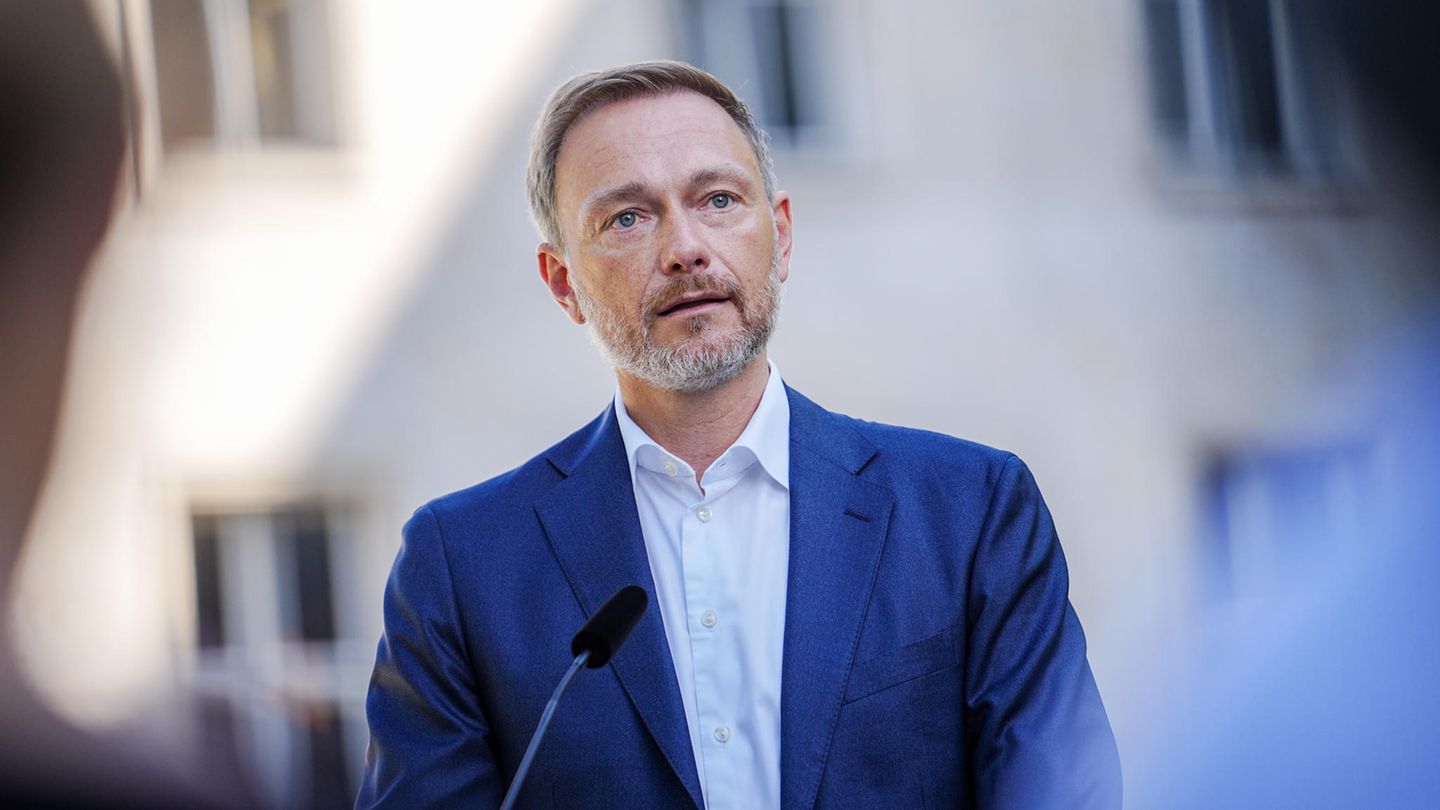The FDP is fighting for the voters’ favor, staunchly upholding its principles – while the polls are pointing downwards. What’s the problem with liberals?
Christian Lindner steps up to the lectern at 10.09 a.m. The cost of living is rising every day while the economy is weakening, explains the Federal Minister of Finance. “We are in a situation where action must be taken,” he says. So he acts, that’s how Lindner wants to be understood this Wednesday.
With an “Inflation Compensation Act” the “harmful cold progression” is to be fought, a “secret tax increase” prevented and around 48 million citizens relieved (). The suggestion, the promise, should find its way into the cabinet as soon as possible.
Lindner presents the plans in his function as Federal Minister of Finance. However, the FDP chairman should not have anything against it if the relief package would also alleviate the growing grief of the Liberals: 7 percent in the , only – the party loses the most support in the traffic light coalition.
The Liberals remain true to their principles, they were among the big winners in the federal elections. No speed limit, no softening of the debt brake, no tax increases. If the traffic lights crunch every now and then – for example because the Green coalition partner is being acknowledged – then apparently for good reason. After all, the coalition was not formed “due to automatic proximity in terms of content”, “but because we have a state-political responsibility.” The FDP ensures that Germany is governed “from the center” and “does not drift to the left”.
The liberals show themselves to be steadfast, often immobile. You don’t want to be bent. But maybe that’s your problem.
It doesn’t work for the FDP…
Because while the FDP is still clinging to its ideals, the Greens have broken with them several times – and have received broad approval for this.
They are the only traffic light party to gain favor with voters compared to the federal elections, despite or precisely because they have put old beliefs to the test. Now the rearmament of the Bundeswehr is supported, the continued operation of coal-fired power plants is accepted, . It is not uncommon for these U-turns to be formulated by Foreign Minister Annalena Baerbock or Economics Minister Habeck, who .
“After just six months, the political balance in the coalition has shifted,” says political scientist Thomas Jäger from the University of Cologne star. “The Greens have gained a lot of profile and approval, the SPD has disappeared and the FDP is moving towards the 5 percent hurdle.”
No further questions, except: Why?
The situation is particularly alarming for the FDP, which staunchly upholds its principles, even though voters seem to appreciate more pragmatism in times of war and crisis. However, reconciling them does not have to be a contradiction in terms.
“War and climate crisis: These are existential times for questions of freedom,” says author and journalist Carolin Emcke. But: “When you see the orthodox reticence with which the party (the FDP, note d. editor) persists in its resistance to a speed limit or how the debt brake is increasingly irrationally sacralized,” she writes in the , “then doubts arise as to how non-negotiable, how existential the longing for freedom of the liberals really is.”
For political scientist Jäger, however, there are other reasons why the FDP is losing favor with voters. Despite four important departments – finance, education, justice and transport – the incumbents are practically unknown next to Lindner. On top of that, they are not recognizable as a team and would not open with any desired reform. “But what they do, they invest unfavorably,” says Jäger.
Example: the 9-euro ticket – and the FDP could have used it much more as a PR measure. “It is one of the principles of prudent politics that in crises drastic measures are taken first, which are then gradually dissolved in order to increase approval and legitimacy,” said the political scientist. “However, introducing the ticket and then describing the expected demands for its extension as a ‘free mentality’ is the opposite of a professional approach.”
In view of the ongoing debate, Finance Minister Lindner recently spoke out against funding from the federal budget for a solution to replace the 9-euro ticket. No funds are available for this in the financial plan. The minister said that he was not convinced of a “free mentality à la unconditional basic income” in local public transport either (). The wording was sharply criticized from many quarters.
In addition, according to the political scientist, the public opinion of the departments managed by the FDP is rather negative. For example, judicial policy is entangled in controversial corona measures, while education policy is “not very popular”.
… if she can’t prove why she’s in government
How does the FDP get out of this situation? “She has to prove why she’s in government,” says political scientist Jäger. If this question cannot be answered on the street, the staff is doing something wrong. “It’s no coincidence that the Chair of the Defense Committee (Marie-Agnes Strack-Zimmermann, d. editor) was the face of the FDP for many weeks because it proclaimed a simple message.” In other words, its relentless call for broader support for Ukraine.
This is where the strength of the Greens currently lies: the visibility and rigorous communication of their two leaders, Habeck and Baerbock, who would also clearly differentiate themselves from the previous government and its “wrong policies”. Of course, that was more difficult for the SPD, which was part of the grand coalition. “The Greens have clear program statements and can even combine these with the fact that they will only be realized in the future – renewable energies and resilient democracy,” says Jäger.
It remains to be seen how sustainable and resilient the promises are. Finance Minister Lindner’s “Inflation Compensation Act” is still up for discussion – at least one thing is certain: it is part of the plans.
Source: Stern
David William is a talented author who has made a name for himself in the world of writing. He is a professional author who writes on a wide range of topics, from general interest to opinion news. David is currently working as a writer at 24 hours worlds where he brings his unique perspective and in-depth research to his articles, making them both informative and engaging.




